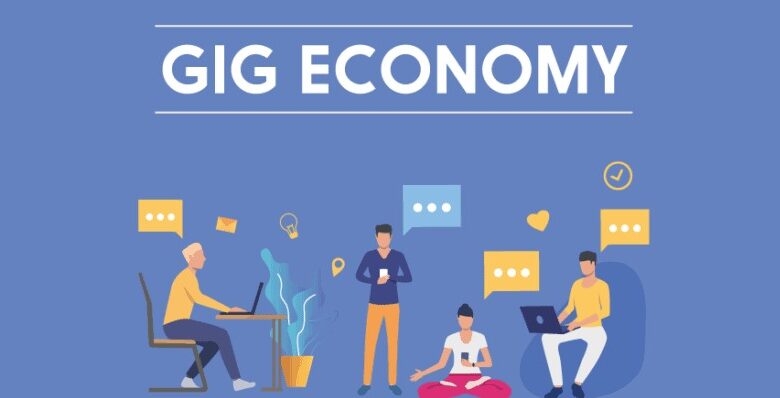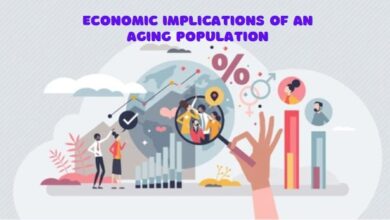How the gig economy is changing the traditional workforce?

The gig economy, also known as the sharing economy, is a rapidly growing trend that is changing the traditional workforce in a number of ways. The gig economy is characterized by the growing number of people who work as independent contractors, freelancers, or temporary workers, rather than as full-time employees. This shift is having a significant impact on the way that businesses operate and on the lives of workers around the world.
The Rise of the Gig Economy
The gig economy has been growing rapidly in recent years, driven by a number of factors including the rise of online platforms that connect workers with clients, the increasing number of people who prefer the flexibility of working on their own terms, and the changing nature of work itself. According to a study by the McKinsey Global Institute, as many as 162 million people in Europe and the United States, or 20-30% of the working-age population, are now engaged in some form of independent work.
The Impact on Businesses
The gig economy is changing the way that businesses operate in a number of ways. For one, it is making it easier for companies to access a wide range of talent and skills on a flexible basis, which can help them to be more competitive and adapt to changing market conditions. Additionally, the gig economy is helping to reduce costs for businesses by reducing the need for full-time employees and associated expenses such as benefits, health insurance, and office space.
The Impact on Workers
While the gig economy can offer many benefits to workers, such as the ability to work on their own terms and the ability to choose the projects they want to work on, it also has its downsides. One of the biggest challenges is the lack of stability and security that comes with working as an independent contractor, freelancer, or temporary worker. Additionally, many gig economy workers are not eligible for benefits such as health insurance, retirement plans, and paid time off, which can make it difficult for them to plan for the future.
The Future of the Gig Economy
The future of the gig economy is a topic of much discussion and debate. Some experts predict that the gig economy will continue to grow and become an even more prominent part of the workforce. Others believe that the gig economy will eventually stabilize and become less dominant, with more traditional forms of employment returning to prominence.
One of the key factors that will shape the future of the gig economy is government regulation. As the gig economy grows, more and more governments are beginning to take notice and consider ways to regulate it. Some governments are looking at ways to provide benefits and protections to gig economy workers, while others are considering ways to limit the growth of the gig economy.
Another important factor that will shape the future of the gig economy is technology. As technology continues to advance, it will become easier for businesses to connect with workers and for workers to find and take on projects. Additionally, the use of automation and artificial intelligence is likely to increase, which could change the nature of gig work and the types of skills that are in demand.
Social Implications of the Gig Economy
The gig economy has not only impacted businesses and workers, but also has had social implications as well. One of the main social implications is the increase in income inequality and insecurity. As gig economy jobs do not usually provide benefits, job security, and stable income, this can lead to a higher risk of poverty and inequality among gig workers.
Another social implication of the gig economy is the lack of a sense of community and belonging among gig workers. Traditional jobs often provide a sense of camaraderie and belonging among employees, but gig economy jobs often lack this sense of community, leading to feelings of isolation and disconnection.
Moreover, the gig economy has implications on the concept of work-life balance. The flexibility of gig economy jobs can be beneficial for some workers, allowing them to balance work with other responsibilities and interests. But, for others, it can lead to overworking and burnout, as they feel pressure to constantly be available for work and to take on as many jobs as possible.
Addressing the Challenges of the Gig Economy
With the rise of the gig economy, it’s important to address the challenges it poses to both businesses and workers. Some of the ways to do this include:
- Providing benefits and protections to gig workers: Governments and businesses can work together to provide gig workers with benefits such as health insurance, retirement plans, and paid time off. This can help to reduce the insecurity and uncertainty that comes with gig work.
- Encouraging the formation of worker cooperatives: Worker cooperatives are businesses that are owned and controlled by the workers themselves. This model can provide gig workers with more stability, security, and control over their work.
- Developing a safety net for gig workers: Governments can provide a safety net for gig workers by providing them with unemployment insurance and other forms of social protection.
- Promoting fair labor standards: Governments can also set fair labor standards for gig workers, such as minimum wage laws and overtime pay, to ensure that they are paid fairly for their work.
- Investing in training and education: Businesses and governments can invest in training and education programs to help gig workers develop the skills they need to succeed in the gig economy.
- Encourage collaboration and community: Businesses can create opportunities for gig workers to come together and form a sense of community and belonging. This can be achieved by organizing regular meetups, online forums or providing shared workspaces.
Conclusion
In conclusion, the gig economy is a rapidly growing trend that is changing the traditional workforce in a number of ways. While it can offer many benefits to businesses and workers, it also poses challenges that must be addressed in order to make the gig economy work for everyone. By providing benefits and protections to gig workers, encouraging the formation of worker cooperatives, developing a safety net, promoting fair labor standards, investing in training and education, and fostering collaboration and community, we can help to ensure that the gig economy is a positive force for businesses and workers alike.



